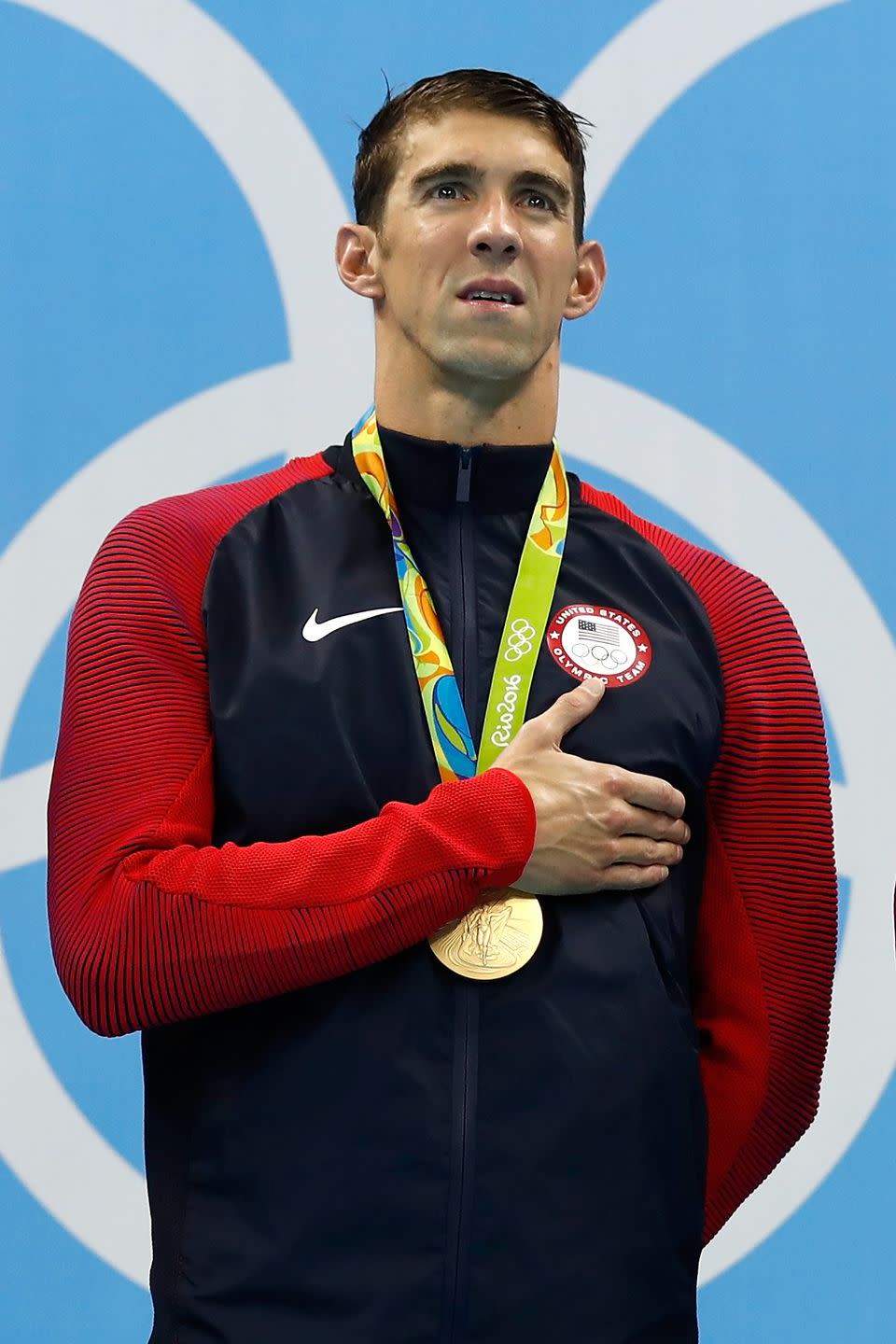Michael Phelps Claims Olympic Committee Officials “Don’t Care” About Him Now

Towards the end of the new HBO documentary The Weight of Gold, Michael Phelps drops a line that is both surprising and heartbreaking.
“I can honestly say, looking back on my career, I don’t think anybody really cared to help us,” the most decorated Olympian of all time said in reference to the United States Olympic and Paralympic Committee. “I don’t think anyone jumped in to ask us if we were okay. As long as we were performing, I don’t think anything else really mattered.”
His quote is just a snapshot of Michael and other Olympic athletes' complicated relationship with the organization, particularly over their handling of mental health issues. Michael's battle with depression is one of several stories chronicled in the documentary The Weight of Gold, which he narrated and worked on as executive producer. The film also explores the mental health struggles of fellow Olympians Sasha Cohen, Gracie Gold, and Apolo Anton Ohno, among others.
Despite Michael's feelings, which other Olympians in the film echoed, the Olympic Committee sees things differently. According to The New York Times, officials have called out the special "perks" Michael received while earning his 28 total medals. These include top-training equipment, the best coaches, and a two-bedroom suite at the Olympic Training Center in Colorado Springs (everyone else reportedly slept in single or double rooms).
But this is not the kind of support Michael is talking about. In Michael's eyes, caring about Olympians isn't limited to top-of-the-line products and facilities that lead to better performance and, ultimately, more medals for Team USA. More importantly, mental health care needs to become a top priority in the years to come — and organizers need to provide aid for athletes even when their careers are over.
“I feel like they don’t care about anything I do right now,” Michael said.
During a conference call with USA Today, he elaborated on his thoughts further: “It breaks my heart because there’s so many people who care so much about our physical well-being, but I never saw caring about our mental well-being. We’re products until we’ve stopped competing, and until we are stopped being treated like we’re products, we’re not going to change the equation.”

In February 2019, the U.S. Olympic and Paralympic Committee created the athlete services division, with the hopes of expanding and providing more mental health, wellness, and safety resources for athletes. According to Team USA's website, the move was aimed to help create a "separation between the people who support athlete wellness and those dedicated to athlete performance."
What's more, this April, organizers announced the formation of a 13-member Mental Health Taskforce to support Team USA.
“We are acutely aware of the mental health concerns facing our athletes — heightened by the current environment in the Olympic and Paralympic community — and are fully dedicated to being an active leader in providing support and resources to help athletes navigate the pressures, and at times, uncertainty, of their careers,” said Dr. Jonathan Finnoff, U.S.O.P.C. chief medical officer, said in a press release.
He continued: “The goal of the taskforce is to ensure athletes, and the staff who are entrusted with their care, are well-informed and prepared to recognize and respond to individuals in need, both before and once mental health concerns arise.”

According to The Times, Weight of Gold filmmakers wanted U.S.O.P.C. officials to participate in the documentary and potentially provide footage. But when approached, the organization allegedly said they would do it only if they were paid roughly $100,000 and the film would highlight the health services the organization provides. Michael and the other filmmakers declined this deal.
When asked by USA Today what the committee could do to show their commitment to being better and supporting their athletes' mental health needs, Michael said he "wish" he could answer that question.
“I wish I had the power to answer that question. … I think there are people who could answer that question very well and hopefully they will soon. I think that’s one of the big reasons why we wanted to get this out there. There are a lot of people struggling and there are a lot of people that could help and do things and really make a difference. ”
You Might Also Like

